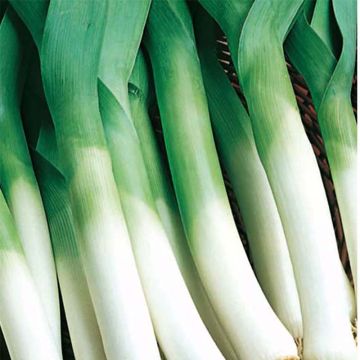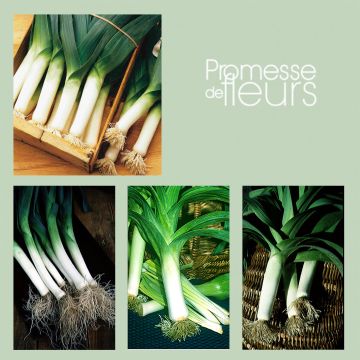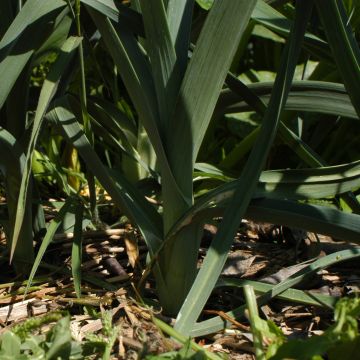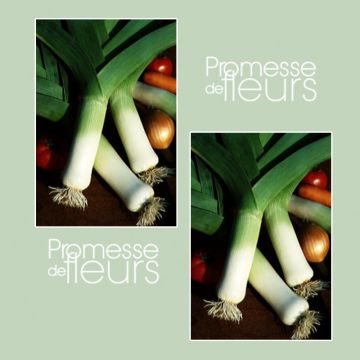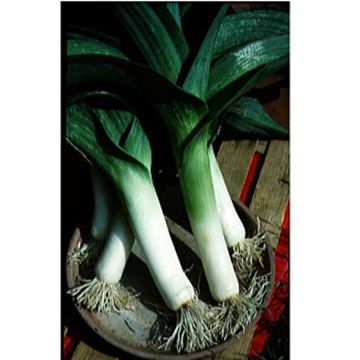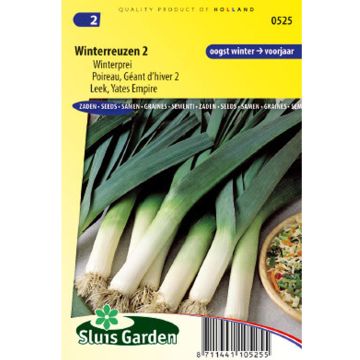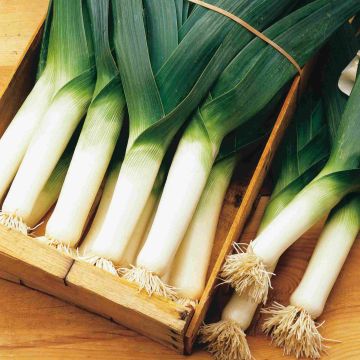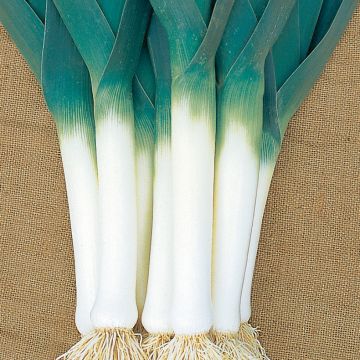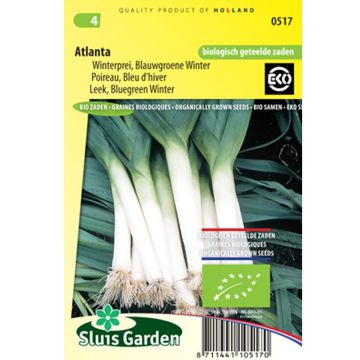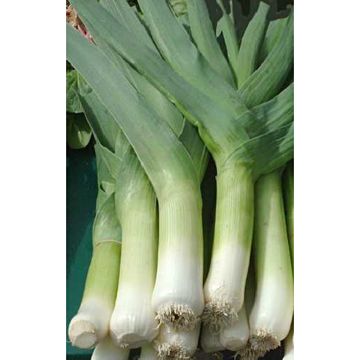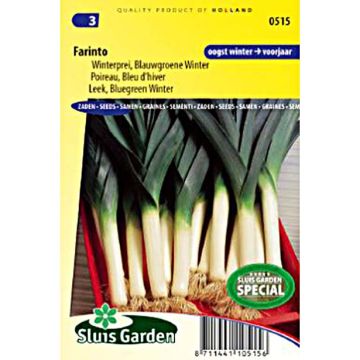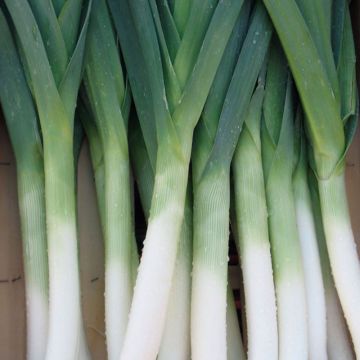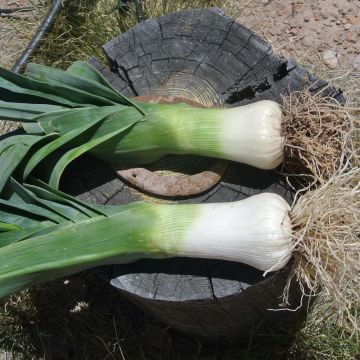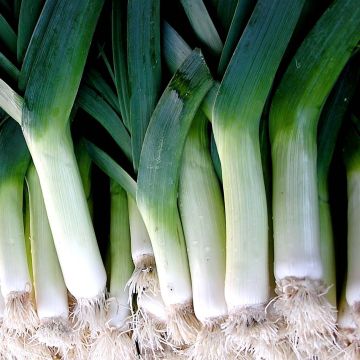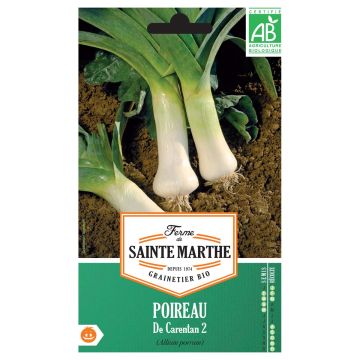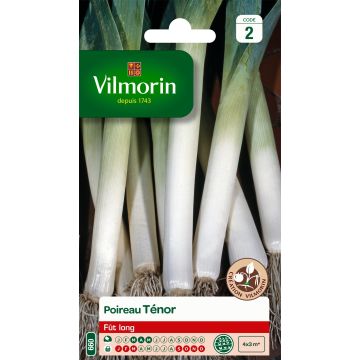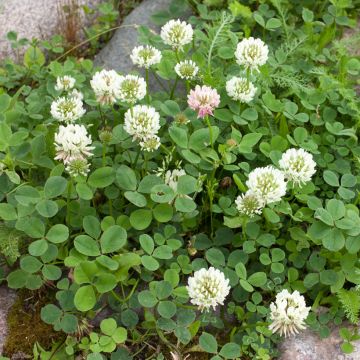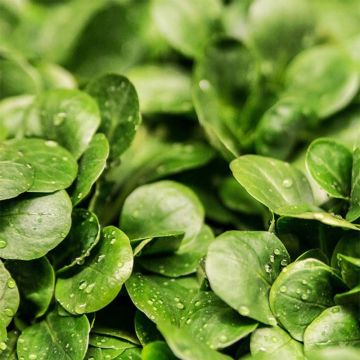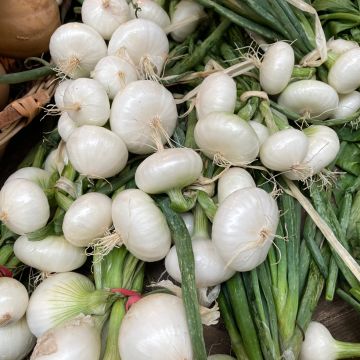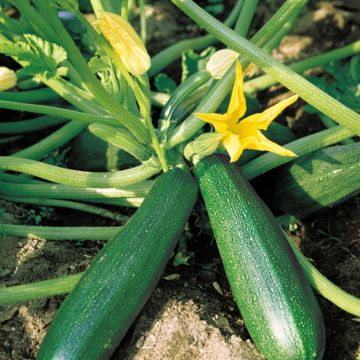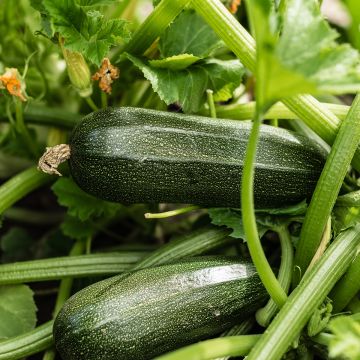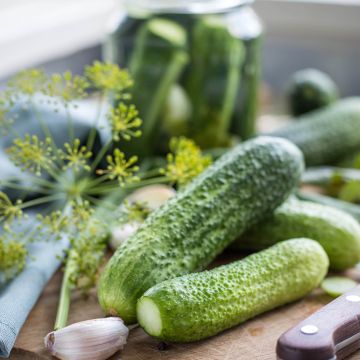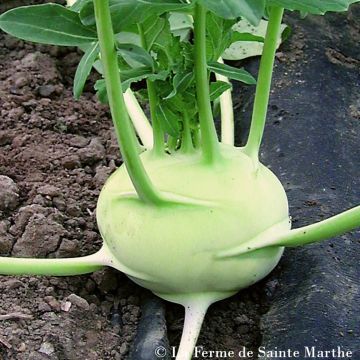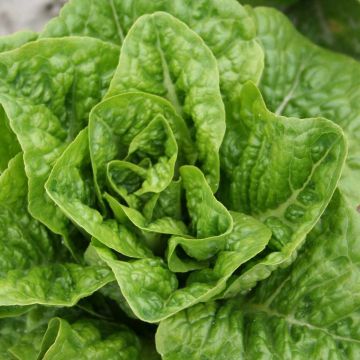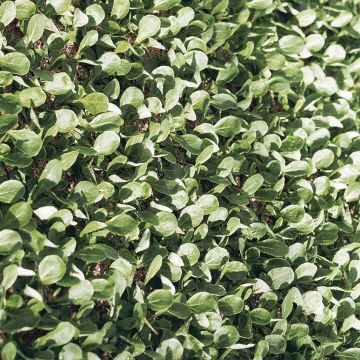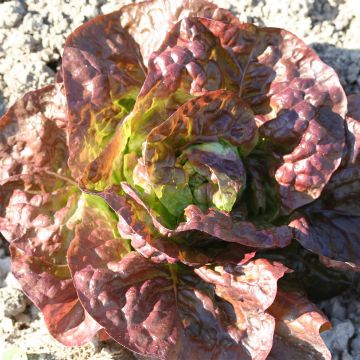Shipping country and language
Your country of residence may be:
Your country of residence is:
For a better user experience on our website, you can select:
Your shipping country:
-
Andorra
-
Austria
-
Belgium
-
Bulgaria
-
Canada
-
Chile
-
Croatia
-
Cyprus
-
Czechia
-
Denmark
-
Estonia
-
Finland
-
France
-
Germany
-
Greece
-
Hungary
-
Iceland
-
Ireland
-
Italy
-
Latvia
-
Lithuania
-
Luxembourg
-
Malta
-
Monaco
-
Netherlands
-
Poland
-
Portugal
-
Romania
-
Slovakia
-
Slovenia
-
Spain
-
Sweden
-
Switzerland
-
United Kingdom
We only deliver seed and bulb products to your country. If you add other products to your basket, they cannot be shipped.
Language:
-
French
-
German
-
Spanish
-
English
-
Italian
My Account
Hello
My wish lists
Log in / Register
Existing customer?
New customer?
Create an account to track your orders, access our customer service and, if you wish, make the most of our upcoming offers.
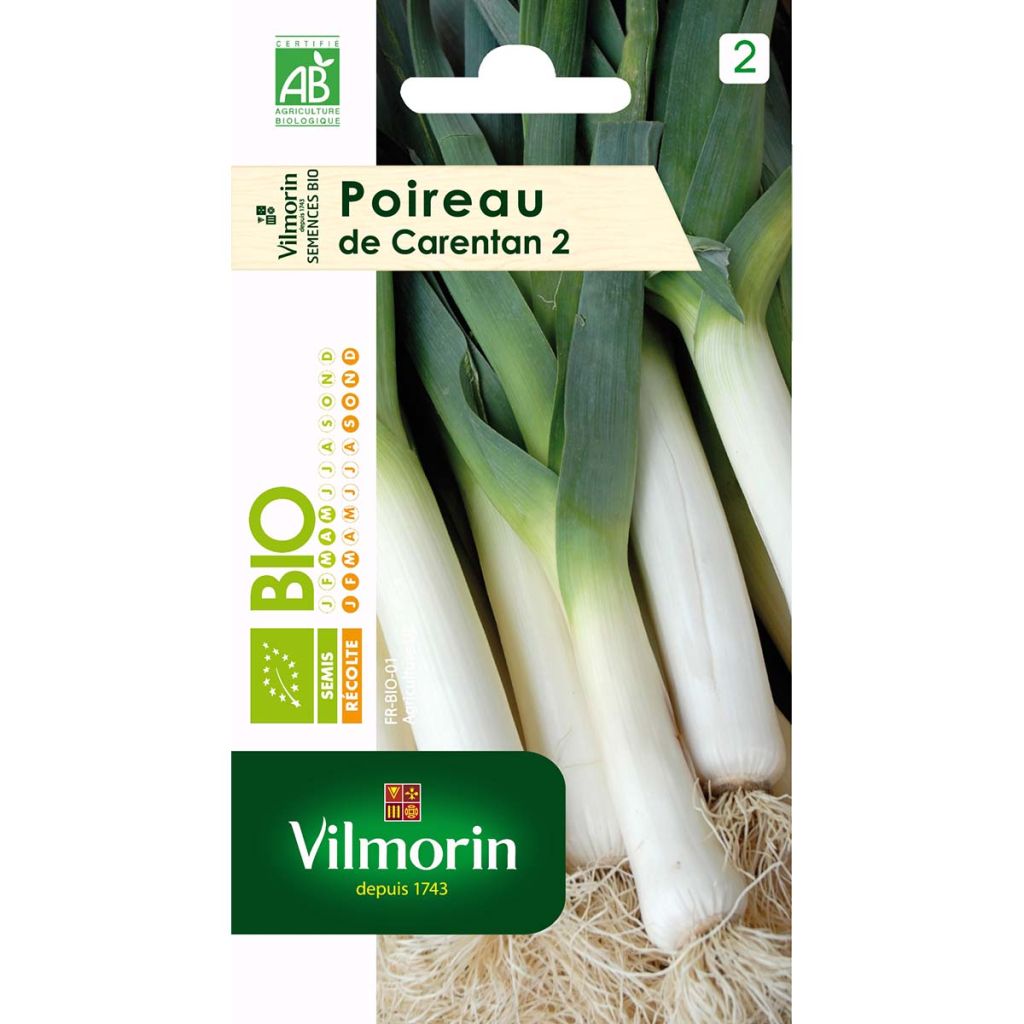

Poireau de Carentan 2 (remplace Poireau bleu de Solaise) Bio - Vilmorin
Organic Carentan 2 Leek - Vilmorin seeds - Allium porrum
Allium porrum de Carentan 2
Leek
Why not try an alternative variety in stock?
View all →Order in the next for dispatch today!
Dispatch by letter from €3.90.
Delivery charge from €5.90 Oversize package delivery charge from €6.90.
More information
This item is not available in your country.
Schedule delivery date,
and select date in basket
This plant carries a 6 months recovery warranty
More information
We guarantee the quality of our plants for a full growing cycle, and will replace at our expense any plant that fails to recover under normal climatic and planting conditions.
Seed-only orders are dispatched by sealed envelope. The delivery charge for seed-only orders is €3.90.
Description
Allium porrum Carentan 2 is a hardy variety of leek with a short and thick stem. It is ideal for autumn and winter harvests. This leek has a characteristic flavour that is perfect in soups, pies, gratins, or salads. Sow the seeds from March to May for a harvest from September to March.
Allium porrum is a biennial herbaceous plant belonging to the Amaryllidaceae family. Originally from Central Asia, it was known to the Egyptians as early as 1500 BC. Its foliage was long and very thin at that time. The Romans also appreciated it. Its appearance then resembled that of its cousin, the onion, with a very slender stem and a well-rounded bulb. It was introduced throughout Europe in the Middle Ages.
The leek has long, blue-green or dark green leaves that are wide and sheathing, forming what is called the stem, which is the white part that resembles a stalk. This stem is the most prized part. When white, its taste is very delicate and corresponds to the part that has not received light. At the end of the second year, it produces a stem topped with a spherical mauve umbel the size of a tennis ball, which has become the emblem of Wales.
Some winter varieties can withstand temperatures below -15°C (5°F) or even -20°C (-4°F). The seeds can be sown between February and August. Considered a winter vegetable, it can be harvested in almost all seasons. Leeks are rich in dietary fibre, which aids digestion. They are also rich in vitamins C and B, as well as sulphur compounds with antioxidant properties. They are also reputed, like onions, to lower cholesterol levels in the blood, among other benefits.
Leeks are not only good for health but also have a pleasant taste: their flavour is somewhere between that of an onion and an asparagus, which has led to one of their nicknames, "the poor man's asparagus". The white stem and the rootlets are mainly consumed. They are used in the preparation of many local dishes around the world. They are a key ingredient in traditional pot-au-feu, and can be eaten in soups, quiches, cold with vinaigrette, or even thinly sliced raw in salads, etc. The Japanese particularly appreciate them: they can be found in many recipes such as sushi and sashimi or delicious sesame leeks.
Harvesting: harvest your leeks as you need them. The harvest usually takes place 5 to 8 months after sowing. Gently pull the leek to avoid injuring or cutting the stem. If you encounter difficulties in this operation, use a small spade a few centimetres away from the desired leek and lever it out.
Storage: you can store them for two weeks in the vegetable compartment of your refrigerator. They can be kept for almost 3 months in the freezer. Bag them after blanching them for a few minutes, rinsing them under cold water, and then drying them carefully.
Gardener's tip: pair leeks with carrots. Carrot flies dislike leeks, and leek flies are not fond of carrots! Tomatoes, lettuces, and strawberries are also good companion plants for leeks. However, leeks dislike the presence of onions, beets, and beans.
To determine if a leek needs watering, simply observe its foliage: if it stands tall, it is not thirsty. If its foliage wilts and leans to the side, it probably needs a drink of water.
Report an error about the product description
Harvest
Plant habit
Foliage
Botanical data
Allium
porrum
de Carentan 2
Alliaceae
Leek
Cultivar or hybrid
Biennial
Other Leek seeds
Planting and care
Soil preparation
Leeks prefer rich and deep soils that are highly enriched with organic matter. However, be careful as the soil must have been enriched several months in advance, as it is sensitive to recent amendments. It is best to choose a location that is exposed to sunlight in generally moist soil that has been loosened beforehand.
Sowing
Dig a furrow that is 2cm (1in) deep and sow a small number of seeds about every centimetre. Cover the furrow with special seed compost and lightly press down with a rake. Sow from February to May under shelter, depending on the climate (greenhouse, tunnel, etc.). Germination will take between fifteen days and three weeks. Transplant the seedlings once they reach a height of about 15cm (6in) and the thickness of a pencil. Before doing so, gently remove the young plants and let them dry in the soil and shade for two days. This aims to remove the leek's odour and thus avoid attacks from the onion fly.
Transplanting
Trim the leek before transplanting. "Trimming" means cutting the roots 2 to 3cm (1in) below the bulb and at the same time cutting the young leaves a few centimetres above the stem. Removing the roots aids rooting, and cutting the leaves prevents rapid evaporation.
Next, prepare holes about 15cm (6in) deep, spaced 15 to 20cm (6 to 8in) apart in all directions. Position your young plants into them. The white part should be completely buried. Water generously with a watering can, which will close the holes around the leek stems. They need nitrogen-rich soil. You can also place freshly mowed grass between the rows. After a period ranging from fifteen days to a month, the plants grow and strengthen. Then, it is advisable to mound soil around the stems to protect them from light, so they remain white and tender.
Overwintering
There are summer varieties and winter varieties, depending on their hardiness and the period in which the leeks should be sown. Sow in autumn for a harvest in spring. This means that some of them will spend the winter outside. In regions with harsh winters, it is sometimes necessary to consider overwintering the leeks, which means gathering them in a location sheltered from the wind and planting them obliquely before transplanting them again in spring.
Seedlings
Care
Intended location
This item has not been reviewed yet - be the first to leave a review about it.
Vegetable seeds
Haven't found what you were looking for?
Hardiness is the lowest winter temperature a plant can endure without suffering serious damage or even dying. However, hardiness is affected by location (a sheltered area, such as a patio), protection (winter cover) and soil type (hardiness is improved by well-drained soil).

Photo Sharing Terms & Conditions
In order to encourage gardeners to interact and share their experiences, Promesse de fleurs offers various media enabling content to be uploaded onto its Site - in particular via the ‘Photo sharing’ module.
The User agrees to refrain from:
- Posting any content that is illegal, prejudicial, insulting, racist, inciteful to hatred, revisionist, contrary to public decency, that infringes on privacy or on the privacy rights of third parties, in particular the publicity rights of persons and goods, intellectual property rights, or the right to privacy.
- Submitting content on behalf of a third party;
- Impersonate the identity of a third party and/or publish any personal information about a third party;
In general, the User undertakes to refrain from any unethical behaviour.
All Content (in particular text, comments, files, images, photos, videos, creative works, etc.), which may be subject to property or intellectual property rights, image or other private rights, shall remain the property of the User, subject to the limited rights granted by the terms of the licence granted by Promesse de fleurs as stated below. Users are at liberty to publish or not to publish such Content on the Site, notably via the ‘Photo Sharing’ facility, and accept that this Content shall be made public and freely accessible, notably on the Internet.
Users further acknowledge, undertake to have ,and guarantee that they hold all necessary rights and permissions to publish such material on the Site, in particular with regard to the legislation in force pertaining to any privacy, property, intellectual property, image, or contractual rights, or rights of any other nature. By publishing such Content on the Site, Users acknowledge accepting full liability as publishers of the Content within the meaning of the law, and grant Promesse de fleurs, free of charge, an inclusive, worldwide licence for the said Content for the entire duration of its publication, including all reproduction, representation, up/downloading, displaying, performing, transmission, and storage rights.
Users also grant permission for their name to be linked to the Content and accept that this link may not always be made available.
By engaging in posting material, Users consent to their Content becoming automatically accessible on the Internet, in particular on other sites and/or blogs and/or web pages of the Promesse de fleurs site, including in particular social pages and the Promesse de fleurs catalogue.
Users may secure the removal of entrusted content free of charge by issuing a simple request via our contact form.
The flowering period indicated on our website applies to countries and regions located in USDA zone 8 (France, the United Kingdom, Ireland, the Netherlands, etc.)
It will vary according to where you live:
- In zones 9 to 10 (Italy, Spain, Greece, etc.), flowering will occur about 2 to 4 weeks earlier.
- In zones 6 to 7 (Germany, Poland, Slovenia, and lower mountainous regions), flowering will be delayed by 2 to 3 weeks.
- In zone 5 (Central Europe, Scandinavia), blooming will be delayed by 3 to 5 weeks.
In temperate climates, pruning of spring-flowering shrubs (forsythia, spireas, etc.) should be done just after flowering.
Pruning of summer-flowering shrubs (Indian Lilac, Perovskia, etc.) can be done in winter or spring.
In cold regions as well as with frost-sensitive plants, avoid pruning too early when severe frosts may still occur.
The planting period indicated on our website applies to countries and regions located in USDA zone 8 (France, United Kingdom, Ireland, Netherlands).
It will vary according to where you live:
- In Mediterranean zones (Marseille, Madrid, Milan, etc.), autumn and winter are the best planting periods.
- In continental zones (Strasbourg, Munich, Vienna, etc.), delay planting by 2 to 3 weeks in spring and bring it forward by 2 to 4 weeks in autumn.
- In mountainous regions (the Alps, Pyrenees, Carpathians, etc.), it is best to plant in late spring (May-June) or late summer (August-September).
The harvesting period indicated on our website applies to countries and regions in USDA zone 8 (France, England, Ireland, the Netherlands).
In colder areas (Scandinavia, Poland, Austria...) fruit and vegetable harvests are likely to be delayed by 3-4 weeks.
In warmer areas (Italy, Spain, Greece, etc.), harvesting will probably take place earlier, depending on weather conditions.
The sowing periods indicated on our website apply to countries and regions within USDA Zone 8 (France, UK, Ireland, Netherlands).
In colder areas (Scandinavia, Poland, Austria...), delay any outdoor sowing by 3-4 weeks, or sow under glass.
In warmer climes (Italy, Spain, Greece, etc.), bring outdoor sowing forward by a few weeks.
